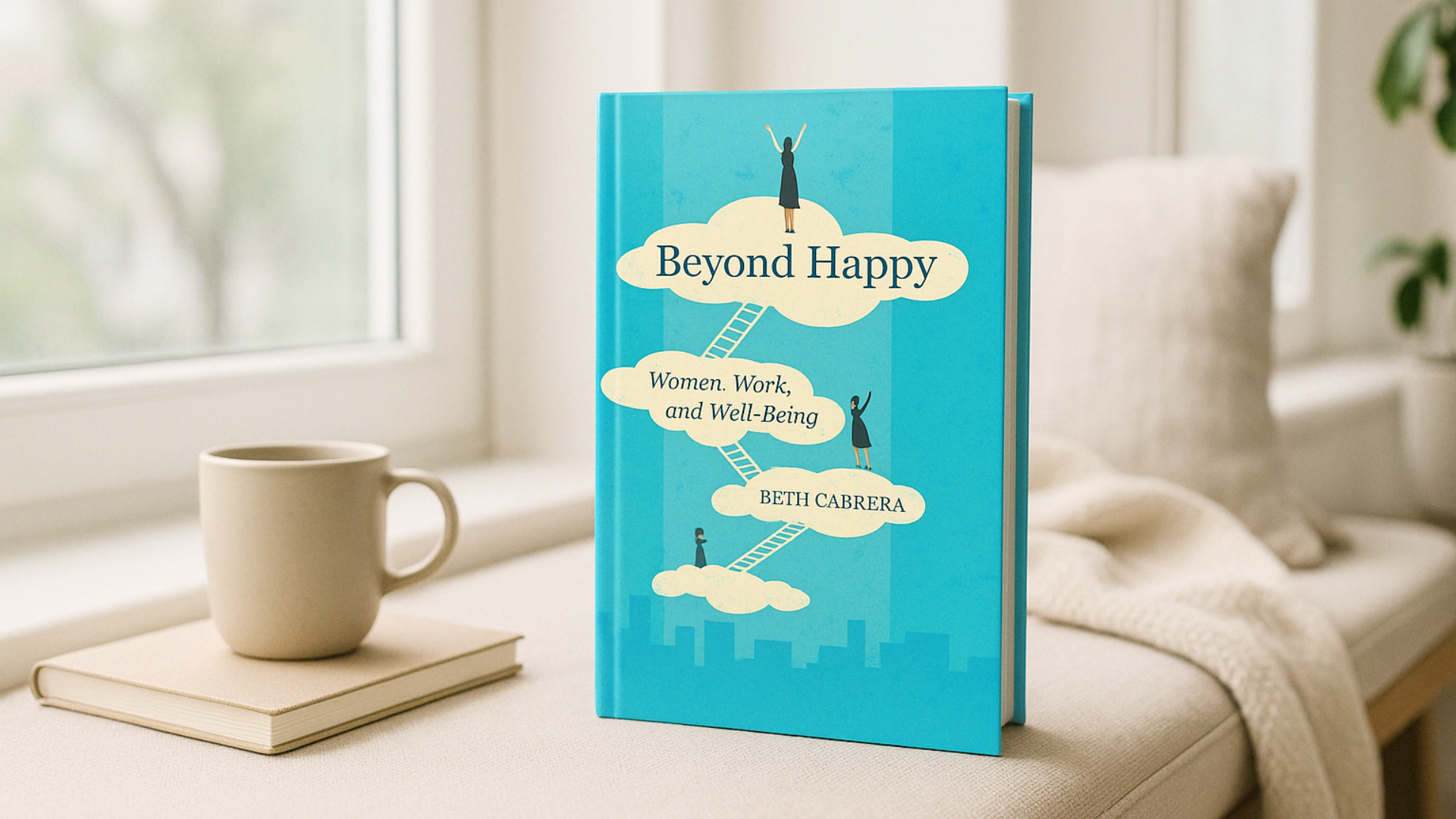How to Find Fulfilment Without Fixing Yourself

Book Review: Beyond Happy by Beth Cabrera
A thoughtful exploration of how meaning, connection, and mindfulness shape a more fulfilling life
In Beyond Happy, Beth Cabrera brings both clarity and compassion to a topic often clouded by surface-level self-help advice. Drawing on her background in positive psychology and her lived experience navigating work, family, and purpose, Cabrera offers a grounded approach to lasting well-being. Rather than aiming for constant positivity, she invites us to shift our focus toward meaning and connection. This is a book about fulfilment, not perfection. About resilience, not relentless optimism.
What the book promises
The promise of Beyond Happy is right there in its title: to take readers past the pursuit of momentary happiness and into the deeper territory of a meaningful life. Cabrera suggests that happiness, in the way we often define it, is not enough. Lasting well-being is more likely when we focus on purpose, presence, and community. The book is especially directed at high-achieving women who are juggling professional demands, caregiving, and invisible labour. Cabrera speaks directly to this audience with empathy and insight.
She offers a framework that combines the science of well-being with practical exercises for reflection and change. Rather than prescribing a one-size-fits-all solution, she encourages each reader to explore what feels personally meaningful, then take small steps toward aligning life with those values.
What the book delivers
Cabrera delivers her promise through a well-structured blend of personal story, psychological research, and actionable reflection. The book is divided into two core sections: one focusing on increasing positive emotion, and the other on cultivating meaning. This dual approach echoes the structure of many positive psychology models, but Cabrera brings a more nuanced, feminine lens to the work.
What stands out most is her framing of "positive practices." Instead of suggesting that more gratitude or mindfulness will magically fix burnout or anxiety, she explores how these practices can gently shift how we relate to our experiences. She backs each idea with studies and real-life examples, making the content feel both trustworthy and accessible.
The writing is steady and sincere. Cabrera's tone remains non-judgmental, even when addressing difficult topics like comparison, chronic stress, or internalised perfectionism. Her examples are often drawn from her own life or from women she has coached, which adds warmth and credibility to her approach.
Style and structure
The style of Beyond Happy is quietly persuasive. Cabrera’s voice is calm, confident, and inviting. She does not overpromise. She does not resort to hype or push productivity. Her message is steady: you are not broken, and small, intentional shifts can make a real difference.
The structure of the book is clean and intuitive. Chapters are short, clearly titled, and end with reflection questions. These prompts are simple but not shallow. Many of them invite deeper thought, and they’re designed to work within the reader’s current capacity. This makes the book easy to read in short bursts, which suits the pace of many women’s lives.
Visually, the layout is uncluttered, with enough space to pause and digest. The balance of research, story, and reflection is well handled throughout.
Where the book shines
One of the greatest strengths of Beyond Happy is its honesty. Cabrera does not claim that a few mental shifts will change systemic problems, nor does she ignore the impact of external stressors. Instead, she offers a realistic view of what we can influence from within, and she shows how meaning can be found even in difficult or uncertain moments.
Her attention to relationships is particularly impactful. Rather than focusing only on internal mindset, she brings in the role of support, community, and shared values. She also speaks directly to women who are balancing many roles, validating the emotional labour and invisible responsibilities that so often go unnamed.
There’s a refreshing humility to her voice. She is clearly an expert, but she is also a fellow traveller. This combination makes the book feel like a collaboration rather than a lesson.
Light limitations
While the reflections and exercises are thoughtful, some readers may wish for more guidance on how to build these practices into complex, unpredictable lives. The suggestions are gentle, but they lean toward introspection rather than action planning. Readers looking for highly structured implementation tools might find the format a little open-ended.
The tone is consistently supportive, but some chapters may feel familiar for those already immersed in personal development work. That said, Cabrera’s lens of meaning offers a grounding reminder that what matters most is often what’s already present in our lives, waiting to be acknowledged.
Final thoughts
Beyond Happy is a wise and kind-hearted companion for anyone seeking more fulfilment in daily life. Beth Cabrera does not try to fix her readers. Instead, she offers a framework for rediscovering purpose and presence in a world that often pulls us in every direction. Her message is simple but not simplistic: happiness is not the goal, but a by-product of living in alignment with what matters most.
For women navigating high-pressure careers, caregiving roles, or internal doubts about “doing enough,” this book offers space to breathe and to begin again. It is an invitation to reframe the pursuit of happiness not as a constant chase, but as a process of paying attention, choosing presence, and trusting what brings meaning.
Highly recommended for thoughtful women seeking a grounded and compassionate approach to well-being through mindful connection, emotional insight, and purpose-driven reflection.